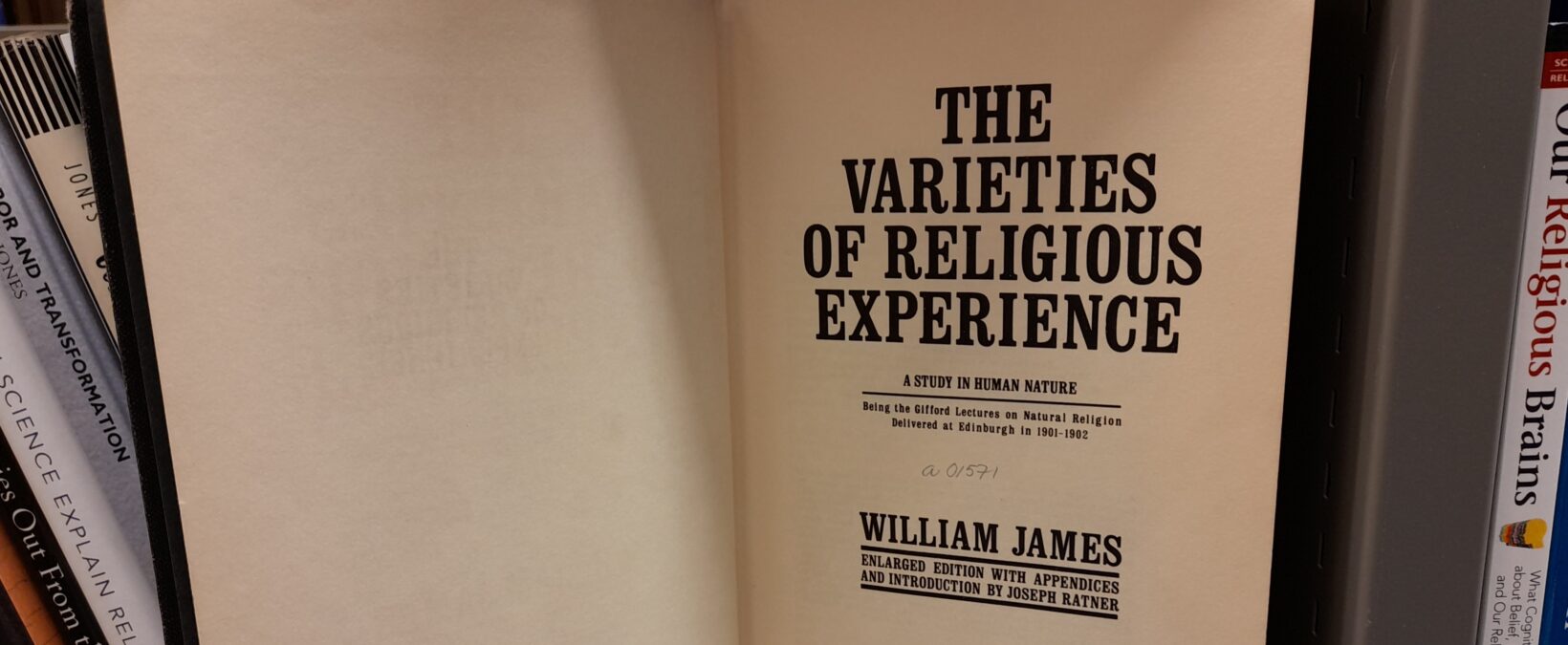
The Varieties of Religious Experience
The Varieties of Religious Experience. A Study in Human Nature. Being the Gifford Lectures on Natural Religion delivered at Edinburgh in 1901-1902 by William James. Longmans, Green, and Co, 1902.
The classic The Varieties of Religious Experience is based on the American psychologist and philosopher William James’ (1842–1910) Gifford-lectures in Edinburgh 1901–1902 in the relatively new academic subject religion. What interests James is the individual’s religiosity. According to James, religious experiences and emotions are the most important for a religious life, while institutional religion is secondary. The perspective is functional, pragmatic, and phenomenological. James claims among other things that religiosity should be valued according to the fruit it bears, which is to say the importance it has in an individual’s life. This can be related to the contemporary perspective lived religion.
The book contains many exemplifying stories about religious experiences. The selection is made up of more extreme experiences and descriptions in confessions and autobiographies of know individuals in Christianity such as Paul, St. Augustine and Luther, but also material, letters and journals collected by James and his colleagues. James does not like generalizations and abstract theories, but he does present a definition of mystical experiences. According to James they have four characteristics: 1) ineffability, they are so emotional and beyond everyday human experiences that they often cannot be described with verbal language; 2) a noetic quality, in the sense that they can offer a feeling of intuitive insight and certainty; 3) transiency, they are short experiences, involving feelings of 4) passivity, or a reception during the experience.
In the Swedish context the concept used is often mystikupplevelser. The concept is not exclusive for institutional religion or traditional religious experiences. It has been used for many kinds of experiences, both within and outside of institutional religion. The pioneer James is often a common denominator for different fields that study experiences of this kind. Finally, James can be criticized for presenting an elitist perspective by focusing primarily on known individuals in Christianity and on exceptional religious experiences in The Varieties of Religious Experience, but his book is still a real classic.
Katarina Johansson